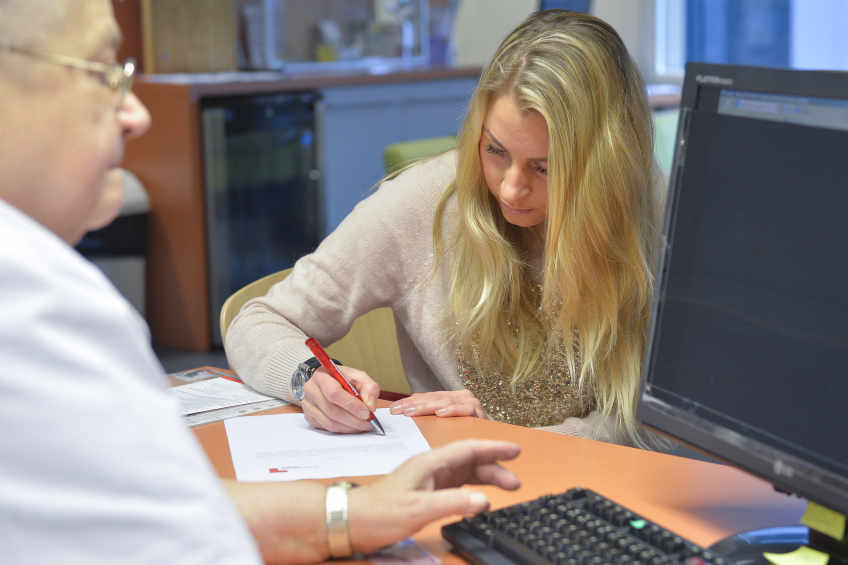Eligibility Requirements
You’re eligible to donate blood if you:
- are healthy, rested and have eaten
- weigh over 50 kg
- are 18-65 years of age (the age of the donor must be 18-60 years old at the first blood donation)
- are an Estonian citizen or have been living in Estonia on the basis of a residence permit/right of residence at least for the last three months
The interval between donations must be at least 60 days. Women are advised to wait 90 days (as women should not give blood more than four times a year).
You are not suitable to become a donor if:
- you are infected with HIV or believe that you may carry HIV
- you have or have had hepatitis B or C or believe that you may carry the hepatitis virus
(Note! In the case of hepatitis A, it is permitted to give blood a year after the virus has been treated) - you have taken intravenous drugs
- you have had intercourse for money or drugs
Sexual partner of person, belonging to one of the above infectious risk groups, is not permitted to give blood for 4 months following their last sexual encounter.
A 4-month ban on donating blood applies to people who have been in sexual contact with more than one partner, casual relationships and a new sexual partner.
You are temporarily not eligible to donate blood if:
- you are currently ill
- you have used alcohol on the day before or on the same day as your planned donation
- you have travelled to exotic countries where there is malaria or other infectious diseases rare in Estonia
- you or your partner have been given blood transfusions in the last four months, you or your partner have had acupuncture, or had tattoos or piercings done.
Piercings run the risk of contracting blood-borne viruses that can end up being transmitted to patients. If you or your partner have received transfusions, acupuncture, tattoos or piercings, you can give blood only after four months have passed.
Women may not give blood during pregnancy or nursing, and no earlier than six months after giving birth. Donating blood during painful or heavy bleeding menstruation is not recommended.
Use of analgesics (including aspirin-containing painkillers) will not prevent you from giving blood, if you limit intake to one or two tablets for temporary conditions and there are no other contraindications.
You may not give blood during or within 2 weeks of finishing a course of antibiotics. If there are no other contraindications, you may then donate. In each case, we ask you to consult Blood Centre doctors, it depends on your specific illness when you will be cleared to give blood.
Blood donations are allowed once four months have passed after sexual relations with an unreliable or casual sexual partner.
Twelve months must have passed since returning from a malarial area. When coming from an area affected by the West Nile virus (for an updated list of such destinations, ask the Blood Centre) 28 days must have passed and there must not have been any clinical disease symptoms (flu-like symptoms, possible encephalitis or meningitis) during that period. This restriction on blood donations is seasonal. For instance, for the EU member states on the list, the active period for high risk of contracting the West Nile virus runs from June up to and including November. For precise information, consult our doctors.
Note: There are some chronic diseases which also disqualify you as a donor (for instance type I and type II diabetes).
For more about various diseases etc, see the table on restrictions on donating blood
A reference for donors: before you come to the Blood Centre
- For blood donations to be safe for both your health and that of the patient, thoroughly evaluate your health before you show up at the Blood Centre. If you have any health concerns at all, consult a blood centre doctor or skip the blood donations. Remember that patients (and these could even be people you know and love) need the blood of healthy people who are free of infections and diseases.
- When coming to give blood, always take with you a photo ID. We also advise bringing a donor card (a small red card) that you will be given upon your third time giving blood. The card lists your blood type, donor code and the earliest next recommended donation date.
- Drink plenty of juice or water on the day before on the day you give blood, and eat non-fatty foods. The best time to give blood is two or three hours after you have eaten. In the interests of blood quality, avoid overly rich foods (including fatty pork, cream, mayonnaise, whole milk) starting on the day before you give blood.
- Right before giving blood, drink a couple glasses of juice or water in the resting room. Avoid hot coffee or tea, however. This will ensure you feel well after you give blood.
- Avoid physical exertion (such as working out, saunas, swimming) on the day you give blood and the day after. Also refrain from participating in competitive sport.
- Don’t smoke or use nicotine pouches for a couple hours before giving blood, as the toxic effect of nicotine in blood poses a risk to patients, especially infants.
- If you have received vaccinations, you can get information on this here.
If you have any concerns about your health or whether you are eligible to give blood, please ask our doctors for advice at 617 3001 (we take questions from prospective donors at the Ädala tn blood centre during opening hours on Monday and Friday from 8:00-16:00 and from Tuesday to Thursday from 11:00 to 19:00). You are also welcome to ask for more information at the Ülemiste Doonorikeskus registration desk, tel. 664 0470 (Mon, Wed-Fri 9am-5pm, Tue 9am-6pm).
